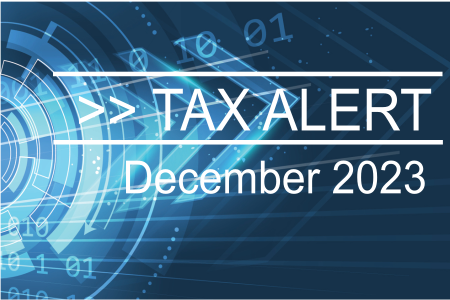A key part of the government’s economic response to the coronavirus is to support business investment and cashflow by increasing the instant asset write off threshold and eligibility rules.

But while the instant asset write-off has been around for several years, many small businesses haven’t taken advantage of them.
So what is the instant asset write-off (IAW) and how can it help your business?
Claiming an immediate deduction
Put simply, the IAW provisions allow your business to claim an immediate tax deduction for the full cost of a business asset you buy. Normal depreciation requires you to deduct the cost against your business profits over several tax years.
Under the new rules, you can claim a tax deduction in the same financial year you purchase new or second-hand plant and equipment costing under $150,000.
Unfortunately, the IAW is not a cash refund. You don’t get the amount you spend back from the ATO, but instead get the timing advantage of bringing forward a tax deduction you would normally receive over several tax years.
A simple example is a plumber who purchases a new $16,000 trailer for his company. Using the IAW he can claim an immediate tax deduction of $16,000, which in turn reduces his business profit so he pays less tax.
Rules for the IAW
To claim the IAW, the total cost of the asset must be under the threshold (see table). This includes any costs involved in having the asset installed and ready for use.
Each asset must be under the threshold, but there’s no limit to the total amount your business can claim.
If your business is registered for GST, the IAW threshold is the GST-exclusive amount. Otherwise, the threshold includes GST.
From 12 March 2020, businesses with an aggregate turnover of up to $500 million are eligible for the IAW, up from $50 million previously.
Eligible assets for the IAW
What you can purchase is fairly broad, ranging from furniture through to computers and IT equipment, that may be required to enable staff to work remotely.
Industry specific kit such as new tools for tradies, or POS devices and security systems for a retail store also meet the rules.
Although the IAW is generous, assets such as horticultural plants and in house software are ineligible.
If you decide to take advantage of the IAW, make sure you buy the asset because your business needs it. Tax considerations should never drive purchasing decisions.
Watch out for the traps
To claim the deduction, your new asset must be fully installed and ready for use before the end of the financial year in which you lodge your claim.
If you are a sole trader, you also need to apportion any private use. For example, if you purchase a new car and use it for business purposes 70 per cent of the time, you can only claim 70 per cent of the cost.
You are not permitted to reduce the asset’s price with a trade-in or personal use apportionment to get under the current $150,000 threshold. For example, if your new equipment costs $210,000 and business use is 70 per cent (leaving a claimable amount of $147,000), you can’t claim the IAW as the original cost is still over the threshold.
If your business is structured as a partnership, it’s important to remember the partnership owns the asset – not the individual partners – so there is no double-dipping on the deduction. If a partner buys the asset in their own name and does not qualify as a small business taxpayer personally, they can’t claim the write-off.
The business can use equipment finance for the purchase, but you need to check the contract details. Leased assets don’t qualify for the IAW.
Using simple depreciation
If your business buys an asset valued over the IAW threshold, you can’t claim the immediate deduction. You can, however, allocate it to your general small business pool and use the simplified depreciation rules.
The general depreciation rules apply if you are ineligible or choose not to use the simplified rules, or if the ATO classes your business as medium-sized.
Using a general small business pool allows you to combine the business portion of higher cost assets and claim a 15 per cent deduction in the financial year you start using them, then 30 per cent each year after that.
Accelerated depreciation initiative
As part of the government’s coronavirus response, the new Backing Business Investment initiative allows medium businesses with a turnover of less than $500 million to use accelerated depreciation rules to deduct 50 per cent of the cost of an eligible asset on installation. Normal depreciation rules apply to the balance of the asset’s cost.
In these unprecedented times, we are to assist you. Please don’t hesitate to give us a call if you have any questions about the instant asset write off or any aspect of the broader stimulus package.
Instant asset write-off eligibility and thresholds
Eligible small businesses
| Turnover under $10 million |
| Eligible for and chosen to use simplified depreciation rules |
| Purchased asset from relevant date |
| Asset costs less than threshold when first used or installed ready for use |
Eligible medium businesses
| Turnover from $10 million to under $50 million ($500 million from 12 March 2020) |
| Purchased asset from 2 April 2019 (assets purchased prior use the general depreciation rules) |
| Asset costs less than threshold when first used or installed ready for use |
Threshold for eligible assets
| Date | Threshold for each asset |
| 1 July 2020 – onwards | $1,000 |
| 12 March 2020 – 30 June 2020 | $150,000 |
| 7.30pm 2 April 2019 – 11 March 2020 | $30,000 |
| 29 January 2019 – before 7.30pm 2 April 2019 | $25,000 |
| 7.30pm 12 May 2015 – 28 January 2019 | $20,000 |
| 1 January 2014 – prior to 7.30pm 12 May 2015 | $1,000 |
| 1 July 2012 – 31 December 2013 | $6,500 |
| 1 July 2011 – 30 June 2012 | $1,000 |
Source: ATO website
Did you enjoy this article?
Click below to share it
More News Articles

Retirement Planning: It’s Not all About the Money
Retirement is often a massive life change for the majority of people who experience it

FBT – How Fringe Benefits Tax Works
FBT is separate to income tax. It’s calculated on the taxable value of the fringe benefit

Tax Alert December 2023
The ATO is getting back to business with it’s lenient approach during the pandemic over, it’s focus now is returning to traditional debt collection

How a Super Recontribution Strategy Could Improve Your Tax Position
The main reason for implementing a recontribution strategy is to reduce the taxable component of your super and increase the tax-free component

Rental investor? How to Get Your Tax Return Right
Extra care is needed when lodging returns with rentals

What to do if You’ve Been Scammed
Know that you are not alone and you can recover from this. There is support available, if and when you need it
Connect Through our Socials
While you may have come to us from a variety of sources, the time has never been better to join us.
Connect through out socials to keep up to date with our latest news and get some tips.




